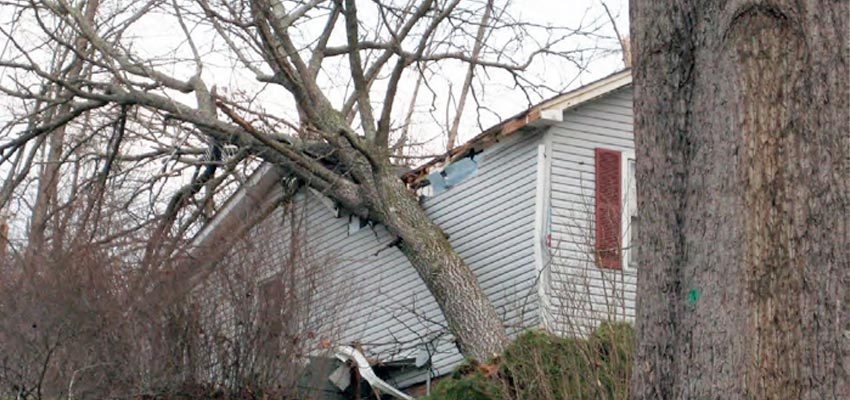How natural or manmade disasters can affect your insurance

Natural and manmade disasters often have unfortunate impacts on the insured, as well as insurance companies. Look at the destructive Columbia Gas explosions that rocked the Merrimack Valley in the fall of 2018. And who can forget Hurricanes Harvey, Irma, and Maria? These disasters caused between $115 and $280 billion (1) worth of damage to both Texas and Florida and somewhere between $40 and $80 billion (2) worth of damage to Puerto Rico.
It is incredibly important to understand the impact of these disasters, both natural and manmade, and how they can affect you, your home, and your insurance policy. To help understand this evolving situation, we’ve broken down how disasters can affect you and what you can do to protect yourself.
Insurance can be more difficult to obtain.
When a natural or manmade disaster strikes the effect on the particular location can be long-lasting. Homeowners can find it harder to purchase an insurance policy after a disaster as insurers adjust their rules and reconsider the risk of flood, fire, or storms hitting the area. Sometimes coverage may no longer even be available in places that are hit year after year.
High-risk areas can drive up repair costs.
After a natural disaster, first responders and recovery crews arrive to support cleanup and demolition efforts. Then, the reconstruction of homes, businesses, and infrastructure begins. Construction workers play a vital role in the rebuilding and recovery process. But if the damage is widespread, there may not be an adequate supply of laborers. It can become incredibly difficult – and expensive – to have repairs done on assets such as your home, car, and property, quickly and efficiently when demands for repairs and supplies are at an all-time high.
Impact on home values
Paradoxically, home values in high-risk areas tend to be higher than homes in low and very low-risk areas. That’s because homes in higher risk areas tend to be more desirable places to live like oceanfront property.
While homes in higher risk areas may decrease in sale prices over time, they usually have a much higher starting point. It is undeniable to see the frequency and severity of these incidents are on the rise, and with a changing climate, it’s not just typical risk areas that could be exposed. Disasters can impact anyone, anywhere.
Flood and Earthquake are not covered perils
Your home insurance policy covers many natural disasters and weather events, including wind, hail, lightning strikes, and wildfires. However, it does not cover damage caused by floods or earthquakes. You would need a separate policy for each of these perils. Many homeowners may not realize this until it’s too late.
The chance of blizzards, flooding, coastal storms, and earthquakes (even in New England) are always present, and it’s important you have the best insurance coverage to insure against potential damage or loss to your home. Although an online policy may look attractive, an agent who lives in your area and understands the risks specific to your neighborhood may be better equipped to ensure you’re covered for all contingencies. Your Bearingstar agent will use their knowledge of the local landscape to suggest the coverage you need and will be there when you need them.
Why not choose an agent who lives and works right in your community? Contact us today to find the policy that’s right for you or request a quote online.
- Irfan, Umair. “ The stunning price tags for Hurricanes Harvey and Irma, explained” Vox September 18, 2017 https://www.vox.com/explainers/2017/9/18/16314440/disasters-are-getting-more-expensive-harvey-irma-insurance-climate
- Friedman, Nicole. “Hurricane Maria Caused as Much as $85 Billion in Insured Losses, AIR Worldwide Says” WSJ. September 25, 2017 https://www.wsj.com/articles/hurricane-maria-caused-as-much-as-85-billion-in-insured-losses-air-worldwide-says-15063713
